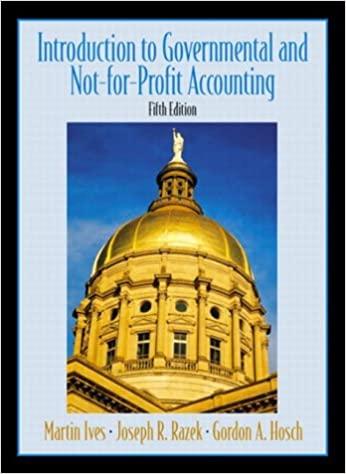(Multiple choice)} 1. What funds are used by federal agencies to account for receipts of resources from...
Question:
(Multiple choice)}
1. What funds are used by federal agencies to account for receipts of resources from specific sources, earmarked by law for special purposes?
a. Special Revenue Funds
b. Special Funds
c. Revolving Funds
d. Deposit Funds 2. What funds are used to account for revenues derived primarily from user charges received from nonfederal sources?
a. Special Funds
b. Trust Funds
c. Internal Service Funds
d. Public Enterprise Funds 3. Who sets federal accounting standards?
a. The Congress
b. The Financial Accounting Standards Board (FASB)
c. The Federal Accounting Standards Advisory Board (FASAB)
d. The Governmental Accounting Standards Board (GASB)
4. What does an unliquidated obligation represent?
a. Resources that cannot be spent for any purpose
b. Resources that have already been disbursed
c. Resources that must be returned to the Treasury
d. Resources earmarked for a specific purpose 5. Who makes apportionments of appropriations to an agency?
a. The Congress
b. The Office of Management and Budget (OMB)
c. The agency
d. The department of which the agency is a part 6. What is the function of commitments?
a. To legally encumber an allotment
b. To formally disclose purchase requests before actual orders are placed
c. To represent the authority to spend money for a particular project
d. To represent legally enforceable promises to specific vendors 7. What account is used to show that an agency has requested payment by the Treasury to a certain vendor(s)?
a. Fund balance with Treasury
b. Accounts payable
c. Disbursements in transit
d. Processed invoices 8. Which of the following statements is not prepared by federal agencies?
a. A balance sheet
b. A statement of revenues, expenditures, and changes in fund balance
c. A statement of net costs
d. A statement of financing
Step by Step Answer:

Introduction To Government And Not For Profit Accounting
ISBN: 9780130464149
5th Edition
Authors: Martin Ives, Joseph R. Razek, Gordon A. Hosch





